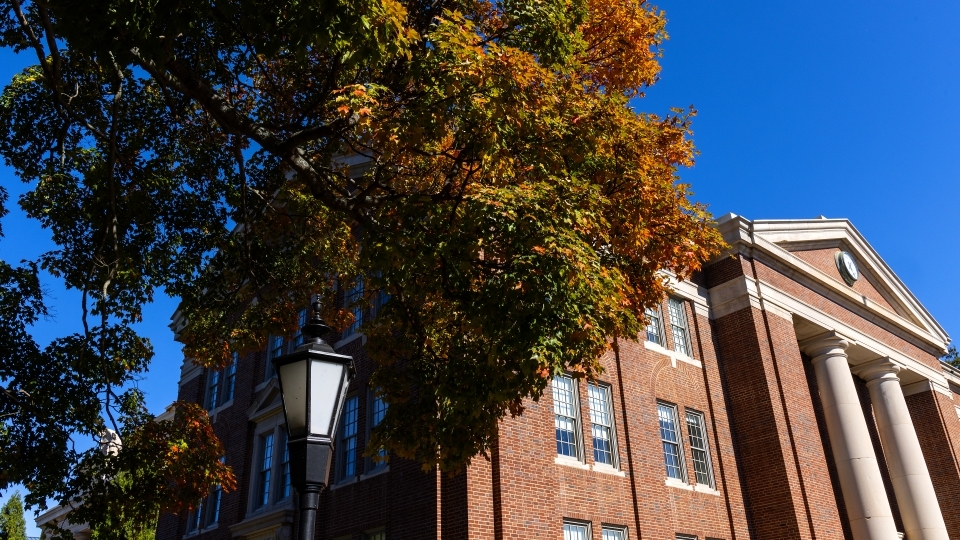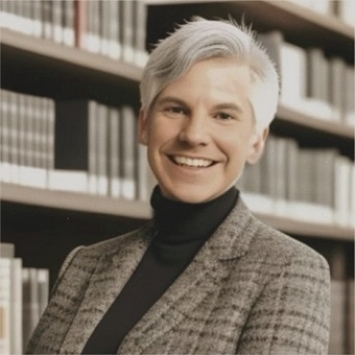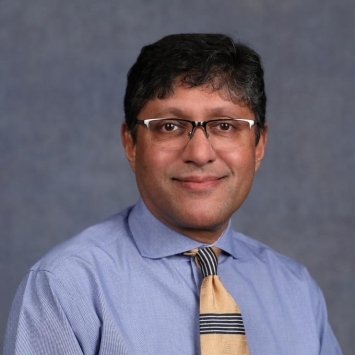Creating Community: Economists Gather to Talk Teaching, Faculty Support
August 4, 2017
- Author
- Lisa Patterson

Caleb Stroup is fascinated by the effects of imperfect information on takeover markets. The sole faculty member in their department to study the topic, Stroup has to look outside of Davidson to connect their interests and experiences with those of economists in their field.
"One of the ways I stay on the cutting edge is by exchanging ideas with other experts in my field," Stroup said. "Skype conversations aren't enough."
Highlights from the Conference
- Macroeconomists from 36 liberal arts colleges around the country made connections and shared ideas during the three-day conference.
- Erin Wolcott, of Middlebury College, led a session titled "Impact of Foreign Official Purchases of U.S. Treasuries on the Yield Curve."
- Four senior economists provided mentoring and feedback to junior faculty during a plenary session titled "Succeeding as a Teacher-Scholar Pre-Tenure & Beyond."
This week, Davidson College's Economics Department played a leadership role in support of faculty development as host of the Annual Liberal Arts Macroeconomics Conference. The conference brought together nearly 50 macroeconomists from 36 liberal arts colleges around the country to share ideas and research Aug. 1-3. This year marks the 13th iteration of the conference, and the first time it has been held in the South.

Intellectually vibrant communities emerge naturally when faculty are actively engaged in scholarly pursuits. For faculty around the country and at all career stages, this conference provides opportunities to exchange ideas—it's intellectually invigorating, and I'm a better teacher and scholar because of it.
Assistant Professor of Economics & Lead Organizer of Annual Liberal Arts Macroeconomics Conference
Faculty development has risen to the fore, as scholarly work trends toward technical specialization and collaborative research across disciplines.
The first conference, held 13 years ago, was funded by the National Science Foundation with the goal of providing a forum for liberal arts macroeconomists to present, discuss and collaborate on scholarly research. A key goal was facilitating collaborations among macroeconomists in similar work environments.
The Davidson conference featured six sessions during which 24 scholarly papers were presented and discussed, and four teaching forums covering topics including inclusive teaching in macroeconomics, macroeconomics and the economics major, political discussions during class, and techniques for active learning in economics.
Other highlights included a panel discussion, titled "Succeeding as a Teacher-Scholar Pre-Tenure & Beyond." Four senior economists led the session and offered feedback to junior faculty about how to succeed in liberal arts environments.
Reflecting the evolving trend in the discipline toward financial economics, as more top liberal arts colleges began to emphasize this area, two of the six paper sessions were devoted to financial economics, including corporate finance and asset pricing. Other sessions focused on money and banking, open economy, fiscal policy and business cycles, and the labor market.
Conference Origins
The macroeconomics conference originated out of efforts begun in 2005 to address the gender gap in economics and has since opened to include all macroeconomists working at liberal arts institutions.
Women earned 34 percent of doctorate degrees in economics in 2011—the smallest share of terminal degrees among any of the social sciences. In the same year, women earned 46 percent of all doctorate degrees overall.
Stroup said the original mission of the conference has not been forgotten—mentoring continues to be an important aspect of the conference that helps junior faculty, regardless of gender, attain success in the field.
Participants at this year's conference developed relationships that will enhance their teaching, research and professional development by discussing research, exchanging ideas and socializing with others in their discipline.

The conference certainly is a milestone of sorts for the Economics Department, and hopefully one form of our concrete contribution to fostering a community of scholars who will sustain and inspire each other over time.
Chair & Professor of Economics
Past years' conferences have been held at liberal arts colleges, including Williams, Claremont McKenna, Lafayette, Vassar, Colgate, Hamilton and Wesleyan.



